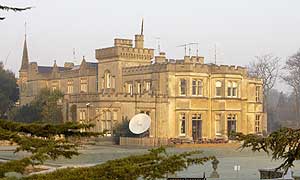Yesterday Martin Belam made me smile a lot with his post on MyBBC. I It reminded me I had this draft waiting to go about just how long it can take for things to get out to the public or even into awareness. t’s not always possible to know when the beginning of a story is. And although I’m researching the first twenty years of the BBC on the internet starting in 1994, the story certainly does not begin there. Generalising madly it’s often said that things usually start about twenty years before they become noticeable to the public.
So in my case 1974 would be a good year to choose. But wait! No , actually 1954 looks like a good beginning. It’s in 1954 that the BBC first sets up a Working Party on Electronic Computers. Whilst this bode well it took a full further seven years before the first computer was bought by the Corporation. According to Asa Briggs (History of Broadcasting in the UK Volume 5 part 2) it was a National Elliot 803B and it belonged to the “Central Establishment Office”. I am thinking that the story of that seven years worth of meetings , papers and even the appointment of an expert to tell the Corporation it was OK to buy a computer is one which would be repeated throughout the period I am looking at.
So, what was 1974 about? Apart from being the end of the period Asa Briggs covers in his last volume he suggests there are three areas of development that heralded the application of computers around the BBC . They were: that the Engineering Division had begun to use computers in their designing of of aerials and analysis of equipment faults, generating electronic music and computer graphics; that management had set up a “management information service” in Television (TMIS) ; and that Radio (External Services) had installed a microcomputer to control the output from all the radio studios In Bush House.
I think it also meant the BBC would increasingly need staff who knew how to work with computers , and those who were interested in exploring some of the new technologies as they began to emerge, and even possibly those who would be able to think about how computers would change the nature of communications in domains outside the military and academia.
When I worked at the BBC from 1993 to 2008 I was repeatedly told that the BBC is an Engineering Organisation with some programmes atttached. In 1974, as the significance of some of the developments were being realised “Information Engineers” were asked to explain the implications of their work to the public so that an “informed discussion” could begin about what the BBC does and has done for the public.
There are moments during this project when it feels like time has stood still. This is one such moment.




